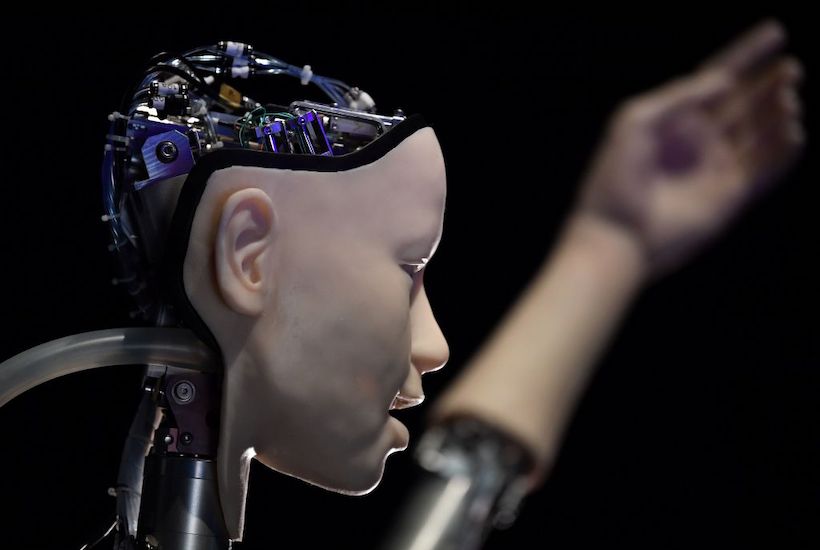I hope that we will not, under current pressures or emotions, be tempted to ignore the basic fact that civilisation in the true sense requires a close and growing attention, not only to science in all its branches, but also to those studies of the mind and spirit of man, of history and literature and language and mental and moral philosophy, of human relations in society and industry, of international understanding, the relative neglect of which has left a gruesome mark on this century. — Robert Menzies, 1957
In his worst whiskey and cigar induced nightmare, Sir Robert Menzies would not have thought possible an Australian university system as Kafkaesque as it is in 2020.
A university system where senior administrators are paid like Reagan-era investment bankers but where free speech exists in the same way as it did at the University of Berlin circa 1951.
A university system where a Liberal government, on the back of poor advice, is picking winners from a decade ago, in its’ proposed 113% increase in the cost of various humanities courses.
The progressive side of politics over the past week has defended the value of studying humanities, which ironically reflects the Menzies position in 1957.
For the record, while I have an MBA, I also have an Honours degree in Arts. My subjects included such resume enhancing intellectual forays as “Anarchism and Libertarianism”. Having spent five years at an investment bank on Wall Street, I can assure Spectator Australian readers that understanding Bakunin and Rand proved more useful than “Management Accounting 101.”
The most compelling reason however that the centre-right of Australian politics should oppose the 113% increase is not grounded in High Toryism. It is based on our national security and economic interests. The study of humanities is critical for the success of any nation in the era of artificial intelligence — AI — and other emerging technologies.
Devaluing the humanities has been an ideological cornerstone of the utilitarian political, bureaucratic and intellectual class since the 1980s.
The national security and economic arguments in defence of the humanities would not have been put in front of Education Minister Dan Tehan. The Minister has likely been offered business case modelling undertaken by a second-year accounting grad at a Big 4 firm, supported by the anti-humanities Robespierre fundamentalism of an adviser.
The cult of STEM education dominates all discussions around value in education with the humanities seemingly having no value in an algorithmic world.
STEM education is critical to Australia’s long-term competitiveness in not only AI but in other emerging technologies such as nanotechnology, synthetic biology, and quantum computing. The negative discourse around the value of humanities, however, misses the critical role areas such as philosophy, social psychology, ethics, and linguistics are playing in advances in AI.
AI is the greatest challenge facing humanity in the twenty-first century. The challenge of AI is both economic and existential. Rather than reducing demand for humanities courses, every student undertaking a STEM degree and specifically any student studying AI-related courses should undertake compulsory courses in humanities subjects. These subjects include linguistics, the philosophy of mind and moral philosophy.
The ethical challenges and decisions being made in the application of these technologies in areas such as autonomous weapon systems are existential. We should feel deeply concerned that twenty-something fasting male coders wearing #virtuesignaller emblazoned hoodies are being entrusted with these existential decisions. This situation would likely horrify Menzies more than intersectionality courses being taught at Australian universities.
Ironically, many of the courses the government is now guiding young Australians to undertake, are amongst the easiest ones for AI to render vocationally redundant over the next twenty years. Any course purely involving working with large amounts of data will go the way of the telex machine by 2030. That is the raison d’etre of narrow AI. Narrow AI, however, is incapable of managing ambiguity, the nuances of language or ethical constructs. Narrow AI only gets to “good” general AI with the humanities.
Mark Cuban, the American billionaire summed it up best in a 2017 Bloomberg interview when he said, “I personally think there’s going to be a greater demand in 10 years for liberal arts majors than there were for programming majors and maybe even engineering.” In 2030, if you have a dual degree in machine learning and linguistics, you will get the start-up role over the graduate with only the machine learning degree.
Perhaps if none of this convinces Tehan of the benefits of the humanities to the future strategic and economic position of Australia, he should do a zoom call with Reid Hoffman. Reid Hoffman is the billionaire founder of the most successful professional networking platform on the planet, LinkedIn. He also has a master’s degree in philosophy from Oxford, which based on his $US2,000,000,000 net worth, clearly made him “job ready.”
Got something to add? Join the discussion and comment below.
Got something to add? Join the discussion and comment below.
Get 10 issues for just $10
Subscribe to The Spectator Australia today for the next 10 magazine issues, plus full online access, for just $10.


























Comments
Don't miss out
Join the conversation with other Spectator Australia readers. Subscribe to leave a comment.
SUBSCRIBEAlready a subscriber? Log in